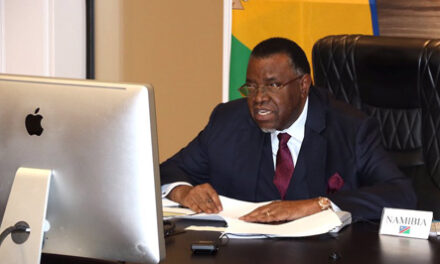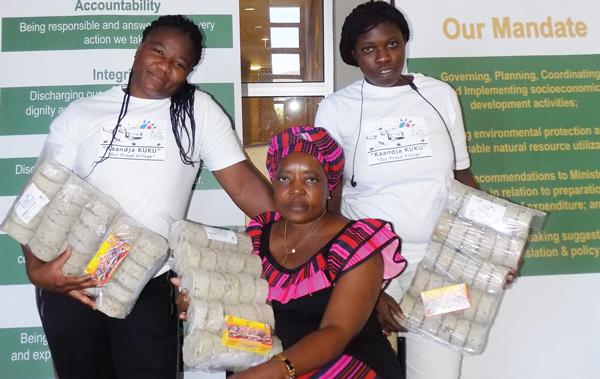
Public beware!, scams rife in country

Ian Leyenaar, Chairman of Bankers Association of Namibia and Chief Executive Officer of FNB Namibia
Chairman of Bankers Association of Namibia and Chief Executive Officer of FNB Namibia, Ian Leyenaar, said: “We know that many of these scams are not new, yet people still seem to fall prey to them and we, therefore, wish to again highlight a number of the more common scams with the help of our media.”
Leyenaar said the association will issue media statements over the next few weeks explaining different types of scams, which are in circulation in the country and again request the public to be vigilant, not get caught out and to warn as many people as they can about these scams so that they do not fall prey to them”.
The first scam which Leyenaar referred to is the prize and lottery scam.
“These are notifications, which arrive through the mail, by e-mail, or by an unsolicited telephone call and inform the targeted people that they have won a substantial prize (often for a competition they didn’t enter). Various certificates supposedly confirming the winnings are mailed under the pretext that the originals were sent to the paying bank. The victims are required to communicate with a contact person at the bank by mail, or telephonically, for the “winnings” to be processed. The details, offered by the fraudsters, of the contact person at the bank, are fake and that of colluding fraudsters. The contents of these certificates are clearly fraudulent,” he said.
He said that the scam was a typical “advance fee fraud”. “The crux of the matter, unfortunately, is that the so-called winner is told to first remit a certain sum of money as a “consultation or administration fee”, or some extra fees, in advance, before they will receive their alleged winnings. he fraudsters offer the targeted victims a chance to make a substantial fortune through a so-called winning, however at the same time require a fee payable by the targeted victim to perform minor administrative and legal duties. Once the so-called fee is paid you will never hear from anyone again.”
He then laid down the tips to avoid Prize & Lottery scam – be aware and said,“If the offer of such an “opportunity” appears too good to be true, it probably is. The information advises that you have won a prize, but you did not enter any competition run by the contest promoters.
“Be wary of dealing with persons who do not have a direct telephone line, who are never “in” or “available” when you call, but always return your call later. The telephone contact details provided are in most cases mobile numbers and not fixed land lines. Make sure it is indeed a bank you are calling,” he said. “Customers should never interact with the sender or respond to the email if they have never played in a lottery or entered a competition,” he added.
Leyenaar warned customers that they should never respond or reply to sms/emails that request their personal information and /or banking details. “No bank will request such information via email.” he said. “The prize promoters ask you to pay (for administration or “processing”) in advance. Bear in mind that if the winnings are legitimate, there will be no need for an advance payment and customers should never become involved in such scams.
“If it sounds too good to be true” Leyenaar said, “then it probably is”.













































